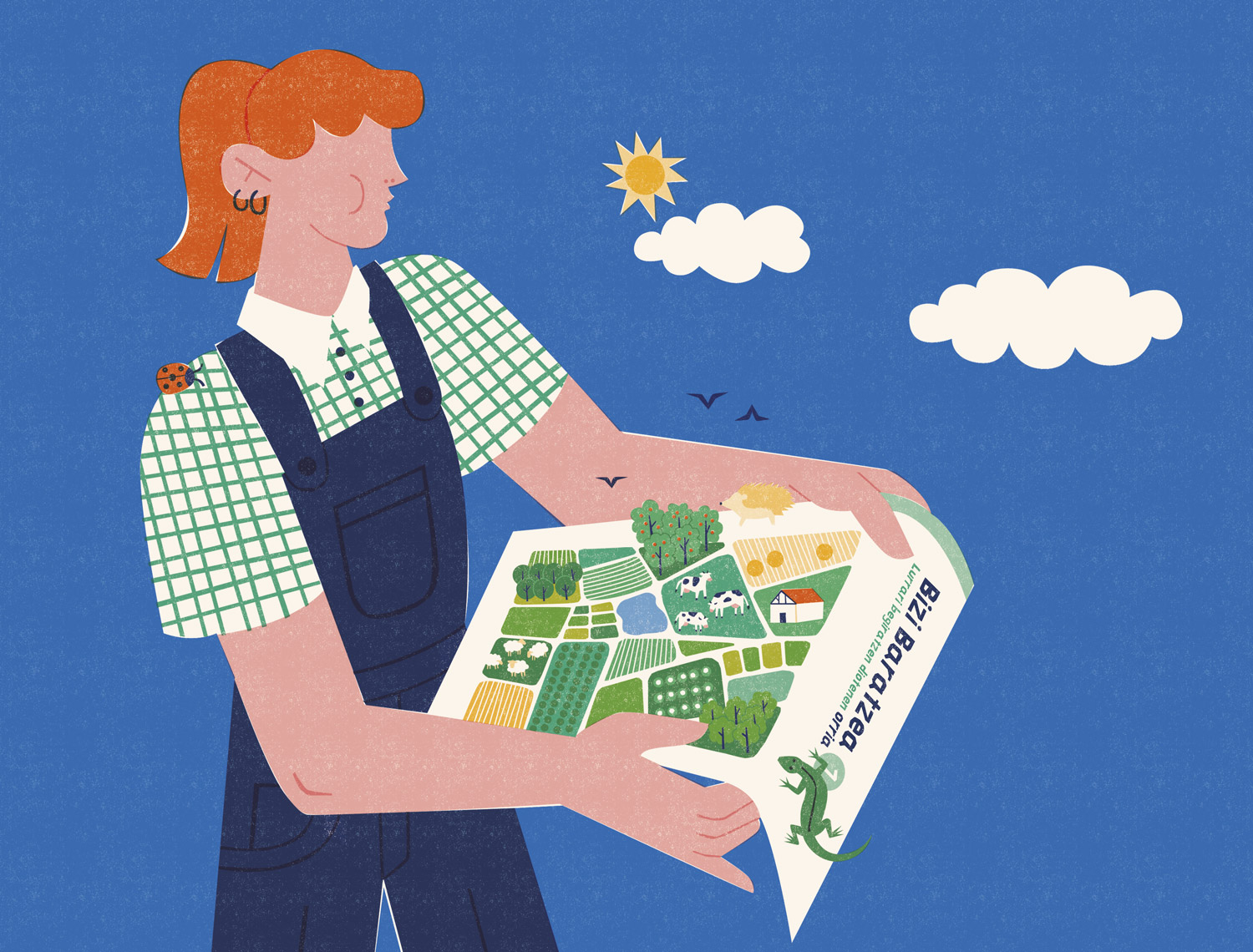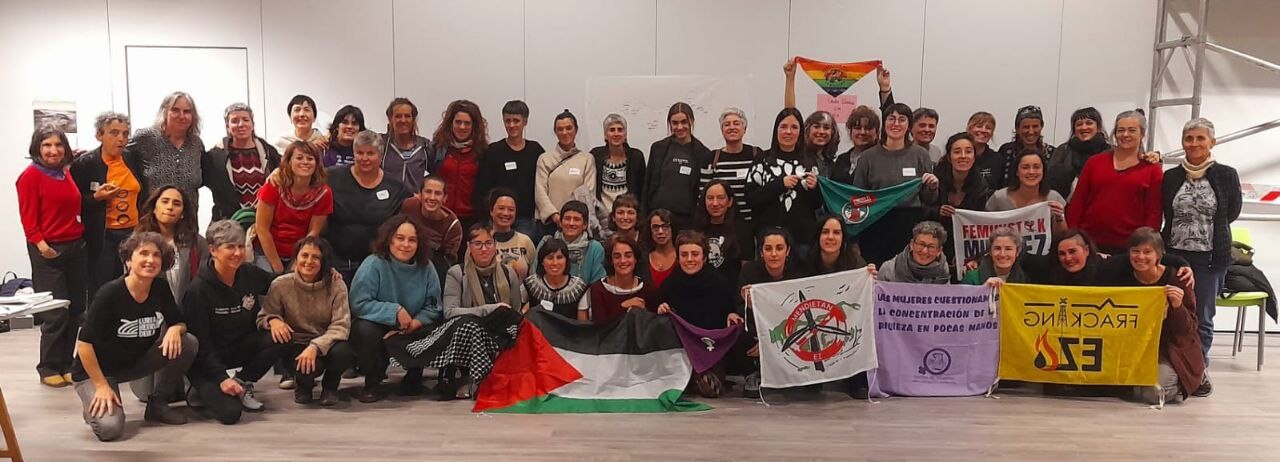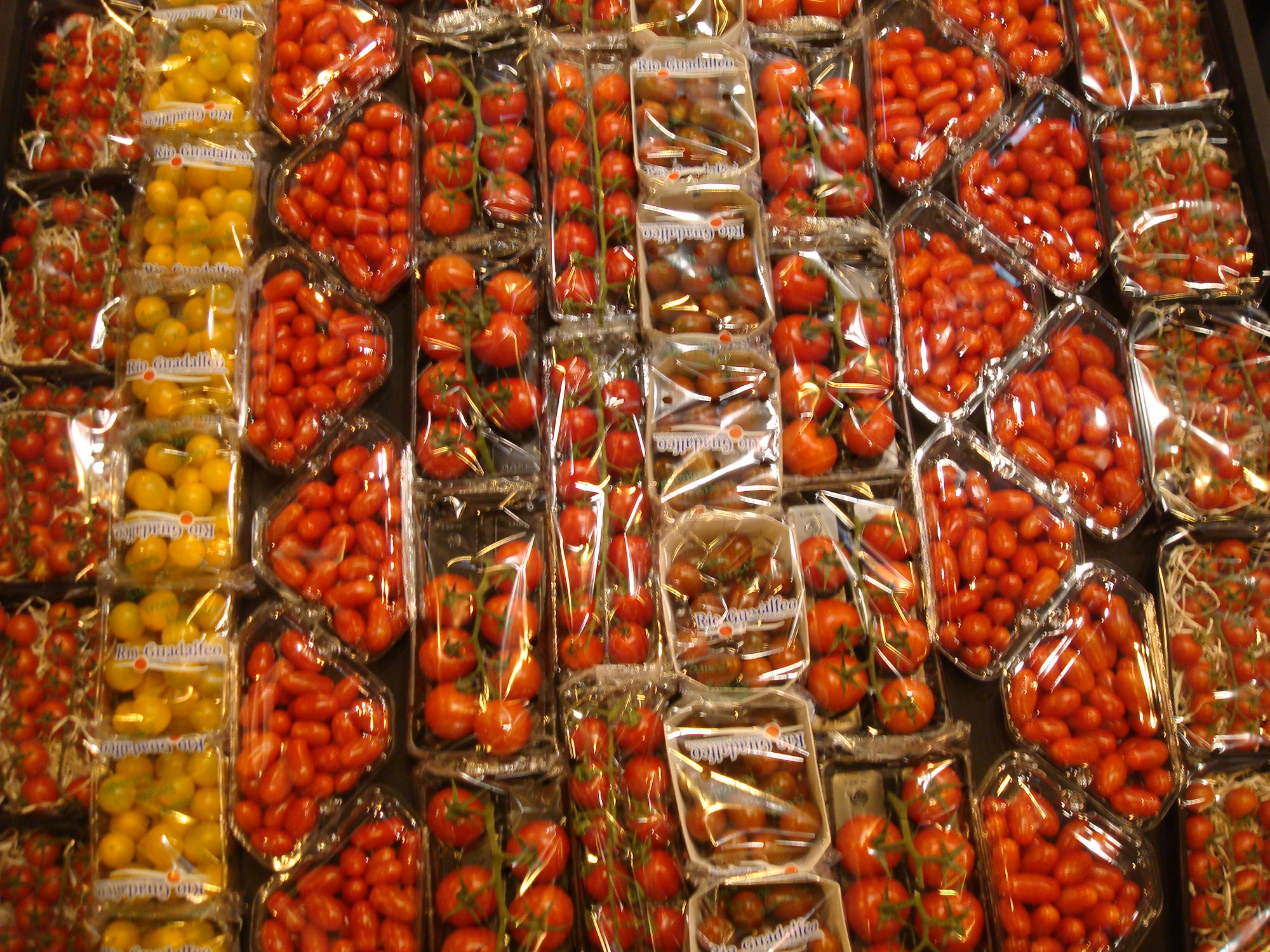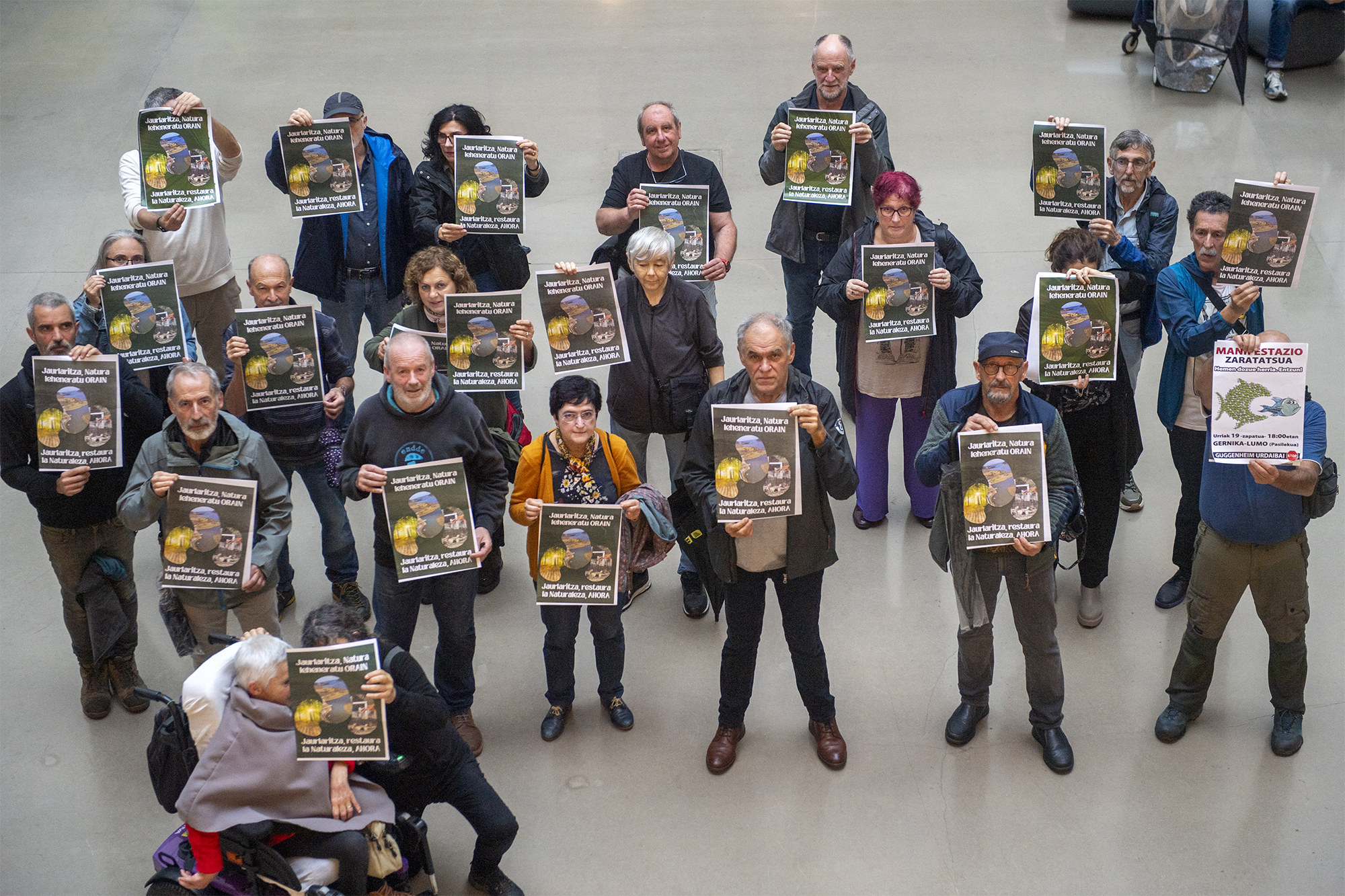The failure of Lesotho ' s monoculture demonstrates the need to rethink development
- The State of Lesotho is currently dependent on world food aid. It is a significant example of the failure of monoculture of large plots, although the beginning of a solution was developed by a local creator. It serves us to rethink the concept of development: is it synonymous with industrialization and urbanization, or should we make more room for food sovereignty and sharing knowledge?

Lesotho is one of the least known countries in the world. Enclave within South Africa, located in the Maloti range. It has 30,000 km2 and two million inhabitants, 80% of whom work in the primary sector. It is a mountainous town, whose territory extends over 1,400 metres. Interestingly, the climate and the shores of Lesotho evoke the Atlantic side of the Basque Country: the mountainous and green corners, the ocean climate (although the ocean is distant, it also occurs in high altitude areas of the tropical areas), maize in the fields and cows in livestock farming. As in ours, millet grew in the Middle Ages and maize from America became part of its cultivation. On the contrary, unlike our own, maize has not removed the risk of starvation in Lesotho, especially because it does not adapt well to variable rainfall cycles: if the level of rainfall is sufficient, maize gives more than millet or sorghum, so it was imposed in our country, while suffering from drought production falls in comparison with sorghum.
In fact, Lesotho has been in this situation several times in recent years, and in the summer 2021-2022 heavy rains have damaged crops. Consequently, 22 per cent of lesotarras live in a situation of serious food insecurity and much of the food comes from United Nations aid programmes. In addition to droughts, soil erosion is a serious problem. Furthermore, the health status of the population is not good, with the proportion of people with AIDS being between 25% and 30% the second highest rate in the world.
Machobane, crop restorer
Before studying in Agronomy, James Machobane (1914-2007) was known as a writer. In his novel, he reported the famine he suffered in his childhood, which pushed him to steal the old bread thrown at the school saws. These experiences prompted the creation of a growing school called Mantsa Tlala (“Starving”) in 1957, when English power was weakening. The system, developed for thirteen years, is based on three axes: better use of time and space, plant diversity and fertility on the farm itself.
He realized that the monoculture of maize was in a few months of the year and that the rest of the months the land was wasted. He also investigated how to make better use of the gaps between maize lines and how to sustainably improve system fertility from manure and wood ash. In this system wheat and pea are typically planted in autumn, then in early spring the potato is picked up in summer. In summer, corn, beans, pumpkin, sorghum, cabbage and a plant near the peanut grow together. In addition, he recommended having one livestock in each house to take advantage of the meat and make manure.
This system is particularly targeted at the poorest farmers: the land is suitable for small farmers and cannot buy synthetic fertilizers or machinery. In addition, Machoban and the peasants he trained encouraged them to practice “letsema”, the dissemination of knowledge in auzolan, and made a special effort in their training to women and children. Growers who have tested their system have three main advantages: higher surface productivity (half a hectare is sufficient to ensure the food security of a family of five members, as opposed to the 1.2 hectares needed in the traditional system); sufficient collection for the sale of potatoes can gain and good production in dry years. In addition, the increase in plant diversity increases the fluctuations in benefits, improving nutritionally the status of these crops and the microbiological and physical characteristics of soils, increasing their capacity to combat climate change. According to Letla Mosenene, an agro-forestry engineer, women are
generally more interested in this system than men, because they consider food security to be more senior, because men value more machinery.
Difficulties in extending practice
From these optimistic results, we can imagine that the Machobane system has spread throughout the country. Unfortunately this has not been the case, mainly for political reasons. Despite being under colonial rule, Machoban saw the work done and the fame he gained, the first administrations around King Moshoeshoe II after independence. As a result, between 1966 and 1986 Machobane had to live in secret and closed his school. Following the 1986 coup d ' état, the Ministry of Agriculture re-tested its system, and soon formations began.
At present, however, the decision-making model in Lesotho ' s cultivation remains the monoculture of maize: nearly 3,000 farmers practise the Machobane system and therefore over a million do not. In an interview with the artistic television channel, Agriculture Minister Lits’oane clearly explained the main need for cultivation in Lesotho: to promote the purchasing power of synthetic fertilisers. He said that he knows the Machobane system and that it seems suitable for orchards, but that on large farms such as yours it cannot be done without fertilizer.
A country's development indicator is usually the low percentage of farmers, as it is a sign of the industrialization of the crop. On the contrary, it is clear that this paradigm promotes hunger and dependence rather than the development of Lesothon, more with climate change aggravated by erosion and drought. The flag of Lesotho is Khotso, Pula, Nala (“Peace, Rain, Prosperity”) and there are tools to comply with it, provided that inadequate models do not impede the passage.
2020. urteko udaberrian lorategigintzak eta ortugintzak hartutako balioa gogoan, aisialdi aktibitate eta ingurune naturalarekin lotura gisa. Terraza eta etxeko loreontzietan hasitako ekintzak hiriko ortuen nekazaritzan jarraitu du, behin itxialdia bareturik. Historian zehar... [+]
Euskal Herri mailan txikitik handira agroekologia sustatzen duten zenbait elkarte eta kooperatiba ataka larrian daude, finantziazio iturriak bertan behera geratu ostean. Erakunde publikoetatik, berriz, elikadura negozio gisa ikusten duten proiektuen aldeko apustu irmoa nabari... [+]
Gaur abiatu da Bizi Baratzea Orrian kide egiteko kanpaina. Urtaro bakoitzean kaleratuko den aldizkari berezi honek Lurrari buruzko jakintza praktikoa eta gaurkotasuneko gaiak jorratuko ditu, formato oso berezian: poster handi bat izango du ardatz eta tolestu ahala beste... [+]
Iruñean bizi ziren Iñaki Zoko Lamarka eta Andoni Arizkuren Eseberri gazteak, baina familiaren herriarekin, Otsagabiarekin, lotura estua zuten biek betidanik. “Lehen, asteburuetan eta udan etortzen ginen eta duela urte batzuk bizitzera etorri ginen”, dio... [+]
Gipuzkoako hamaika txokotatik gerturatutako hamarka lagun elkartu ziren otsailaren 23an Amillubiko lehen auzo(p)lanera. Biolur elkarteak bultzatutako proiektu kolektiboa da Amillubi, agroekologian sakontzeko eta Gipuzkoako etorkizuneko elikadura erronkei heltzeko asmoz Zestoako... [+]
Emakume bakoitzaren errelatotik abiatuta, lurrari eta elikadurari buruzko jakituria kolektibizatu eta sukaldeko iruditegia irauli nahi ditu Ziminttere proiektuak, mahai baten bueltan, sukaldean bertan eta elikagaiak eskutan darabiltzaten bitartean.
Ibon galdezka etorri zait Bizibaratzea.eus webguneko kontsultategira. Uda aurre horretan artoa (Zea mays) eta baba gorria (Phaseolus vulgaris) erein nahi ditu. “Arto” hitza grekotik dator eta oinarrizko jakia esan nahi du, artoa = ogia; arto edo panizo edo mileka... [+]
























